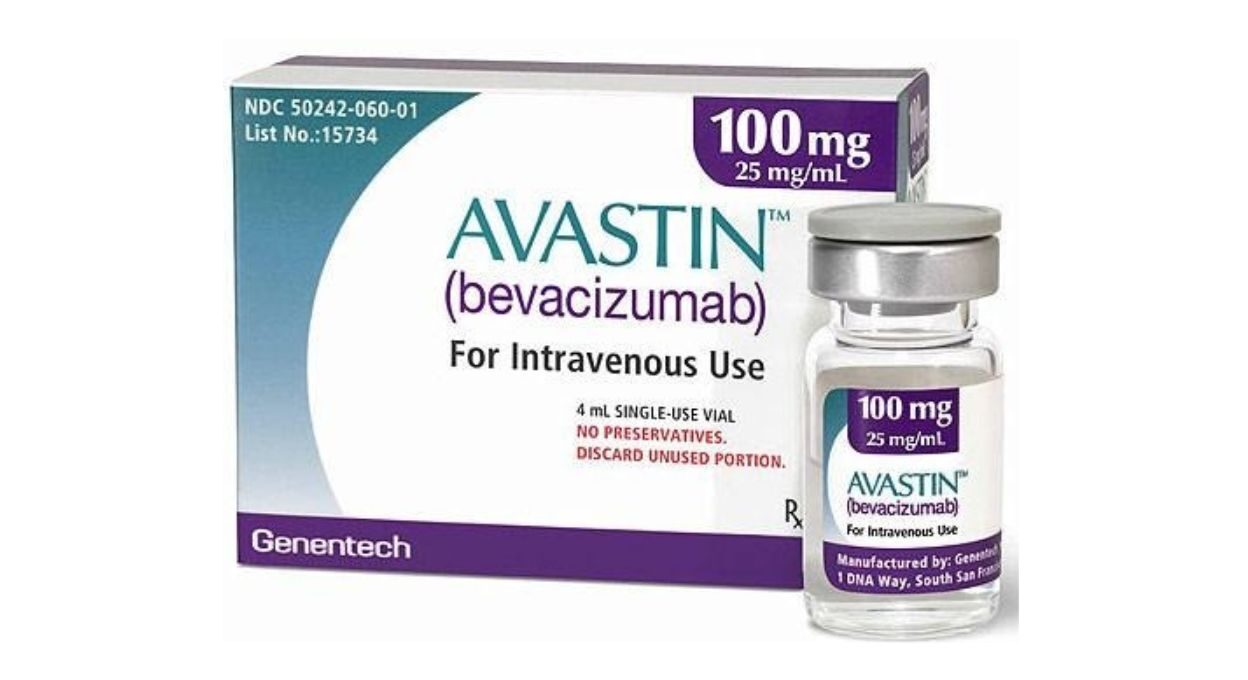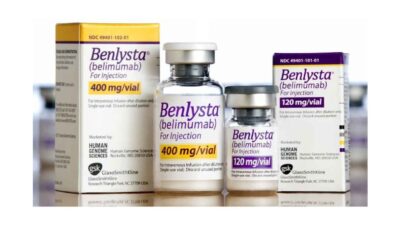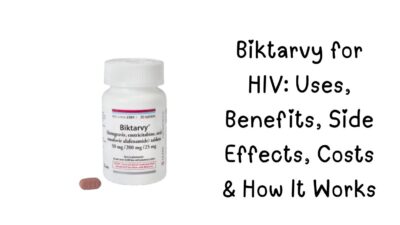Avastin (bevacizumab) is a prescription medication used to treat various types of cancer by inhibiting tumor growth. It belongs to a class of drugs called anti-angiogenic agents, which work by blocking the formation of new blood vessels that feed tumors.
Table of Contents
What is Avastin?
Avastin injection is used in combination with other chemotherapy medications to treat certain types of colon and rectal cancer (cancer that begins in the large intestine), non-small cell lung cancer (NSCLC), glioblastoma (a certain type of cancerous brain tumor), renal cell cancer (RCC, a type of cancer that begins in the kidney), cervical cancer (cancer that begins in the opening of the uterus [womb]), and ovarian (female reproductive organs where eggs are formed), fallopian tube (tube that transports eggs released by the ovaries to the uterus), or peritoneal (layer of tissue that lines the abdomen) cancer.
What is Avastin Used For?
Avastin is an anti-angiogenic drug, meaning it blocks the growth of new blood vessels that feed tumors. It is FDA-approved for the following cancers:
1. Colon & Rectal Cancer
- Used for metastatic colorectal cancer (spread to other organs) in combination with chemotherapy.
2. Non-Small Cell Lung Cancer (NSCLC)
- Helps slow tumor progression in advanced cases.
3. Glioblastoma (Brain Tumor)
- Used for recurrent glioblastoma when initial treatments fail.
4. Kidney Cancer (Renal Cell Carcinoma – RCC)
- Combined with interferon to treat metastatic kidney cancer.
5. Cervical, Ovarian & Related Cancers
- Treats persistent, recurrent, or metastatic cervical cancer.
- Also used for ovarian, fallopian tube, and peritoneal cancers.
6. Liver Cancer (Hepatocellular Carcinoma – HCC)
- Used with atezolizumab (Tecentriq) for advanced HCC in patients who haven’t had prior chemotherapy.
How Does Avastin Work?
Avastin contains bevacizumab, a monoclonal antibody that:
✔ Blocks VEGF (Vascular Endothelial Growth Factor) – A protein that promotes blood vessel formation.
✔ Starves Tumors of Oxygen & Nutrients – Limits blood supply to cancer cells, slowing growth.
✔ Enhances Chemotherapy Effectiveness – Helps other drugs reach tumors more efficiently.
Unlike traditional chemotherapy, Avastin does not directly kill cancer cells but controls their spread.
Warnings & Precautions Before Taking Avastin
Avastin can cause serious side effects. Consult your doctor if you have:
✔ High blood pressure – Avastin may worsen hypertension.
✔ Bleeding or clotting disorders – Increases risk of severe bleeding.
✔ Surgery plans – Stop Avastin at least 4 weeks before surgery due to wound healing risks.
✔ Heart disease – May increase the risk of heart attack or stroke.
✔ Kidney problems – Can lead to proteinuria (excess protein in urine).
✔ Pregnancy – Avoid Avastin as it may harm the fetus.
Common & Serious Side Effects of Avastin
Common Side Effects (≥10% of patients)
- High blood pressure
- Fatigue
- Diarrhea
- Nausea & vomiting
- Loss of appetite
- Mouth sores
- Headache
Serious Side Effects (Seek medical help)
- Severe bleeding (nosebleeds, coughing up blood)
- Blood clots (leg pain, chest pain, stroke symptoms)
- Perforated intestines (severe stomach pain)
- Kidney damage (swelling, foamy urine)
- Heart failure (shortness of breath, leg swelling)
Precautions
It is very important that your doctor check your progress closely and at regular visits to make sure that this medicine is working properly. Blood and urine tests are needed to check for unwanted effects. Be sure to keep all appointments. You may be taught how to check your blood pressure at home.
Receiving this medicine while you are pregnant can harm your unborn baby. Use an effective form of birth control to prevent pregnancy while you are receiving this medicine and for at least 6 months after the last dose. If you think you have become pregnant while receiving this medicine, tell your doctor right away.
Frequently Asked Questions (FAQs)
1. Does Avastin cause hair loss?
Unlike chemotherapy, Avastin rarely causes hair loss, but some patients report thinning.
2. Can Avastin cure cancer?
No, Avastin is not a cure but helps slow tumor growth and improve survival rates.
3. How effective is Avastin for glioblastoma?
Studies show it may delay progression but does not significantly extend overall survival.



